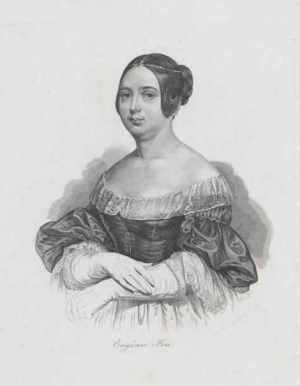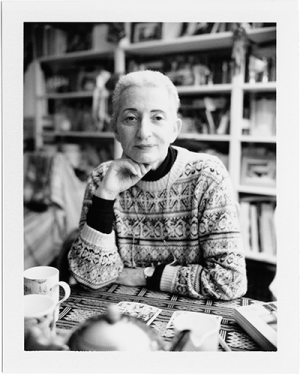Kristin Soulliere
Gary R. Gerson Scholar in Jewish Studies

I am incredibly honored and grateful to have been supported in my studies this past year by the Gary R. Gerson Scholarship and the UF Bud Shorstein Center for Jewish Studies. With this support, I was able to travel inside and outside of France, work on the ground in Paris on my research, and dedicate time to projects that I intend to pursue in my graduate work in French-Jewish Studies at UF. I took courses taught entirely in French, I worked on a UF University Scholars Program project, and I pursued an independent study on the works of Jacques Derrida and Hélène Cixous. This year of study, exploration, and research provided me with the confidence and momentum to move forward with my studies, as well as a greater understanding of the historical and cultural contexts of my areas of interest.
I came to UF originally declared as an English major with minors in Art History and French, but over the course of these past few semesters, my degree program and corresponding interests have expanded. I am now a double English-French Literature major with a minor in Art History and a certificate in European Jewish Studies. Following my graduation in Fall 2022, I will pursue a master’s degree in French and Francophone Studies with a focus in Jewish and Gender Studies. My experiences at UF have been made more meaningful through my time abroad, both in that they helped me find assurance and excitement in the work that I am doing and encouraged me to go deeper into these fields of study.
Projects in French-Jewish Studies

The main project that I worked on in Paris was a research paper for the UF University Scholars Program at UF. It concerned two French-Jewish women writers and their literary activism as it related to issues of women’s bodies. Eugénie Foa, a French woman of Sephardic Jewish descent, wrote fictional tales in the 1830s of the struggles faced by Jewish women within the constructs and confines of marriage and divorce as delineated by French and Jewish traditions. I was introduced to these texts in a course at UF taught by Professor Gayle Zachmann. It centered on post-Revolutionary romantic writers in France during the nineteenth century, and we explored the ways writers were able to mobilize literary texts to address social issues for a wider audience. This concept opened up the opportunity to draw parallels to other Jewish women writers engaging in similar activism. Hélène Cixous’s later Algerian texts, specifically her 2000 work Rêveries de la femme sauvage, pose questions of Jewish alterity, conflicting identities, and the control of women’s bodies within the context of her growing up as a Jewish woman in French-colonized Algeria. Studying these two women’s texts together and their respective cultural and political moments offered fascinating insights into the role women were forced to play in maintaining the fragile boundaries of national identity and community structures.
Reading Cixous inspired a secondary independent study project supervised by Professor Zachmann on the relationship between her and Jacques Derrida, their relationship between texts, and their relationships to Judaism. At the end of my first semester in Paris, I created a list of primary and secondary texts for the study, many of which I could access through the library system of the Sorbonne or the city of Paris. The readings that I chose consisted of works by Derrida on Cixous, by Cixous on Derrida, a collaborative work that they co-published in 1998, as well as a handful of scholarly works on the subject of their overlapping histories, their handling of religious identity in their texts, and combined analyses of specific works of each author. I really enjoyed the freedom the independent study offered in the way of designing a course specific to my research focuses and having the resources and history of Paris at my disposal to supplement both projects was incredibly useful and enriching to my experience.
The Scholarship

During my time in Paris I found many opportunities not only to engage with my research through local historical resources, but to study Jewish history in depth throughout the city and in the other countries. The Mémorial de la Shoah (France’s Holocaust museum) was of great use to me, and specifically their vast collection of Holocaust documents located in the museum’s permanent collection and in the Jewish Documentation Center which is housed there. I was also able to attend a panel discussion on the resistance effort across France and a film screening hosted by the Mémorial in spring 2022. I enjoyed attending a variety of public lectures and museum curations throughout my time in Paris, such as an exposition on Women War Photographers, a showing of a new documentary on the political philosopher Frantz Fanon, and an exposition on the subject of Jewish and Muslim relations in France at the Museum of Immigration. Being in a city that is so focused on highlighting and exploring history, culture, and the arts was an invaluable personal and academic experience that I will not soon forget.